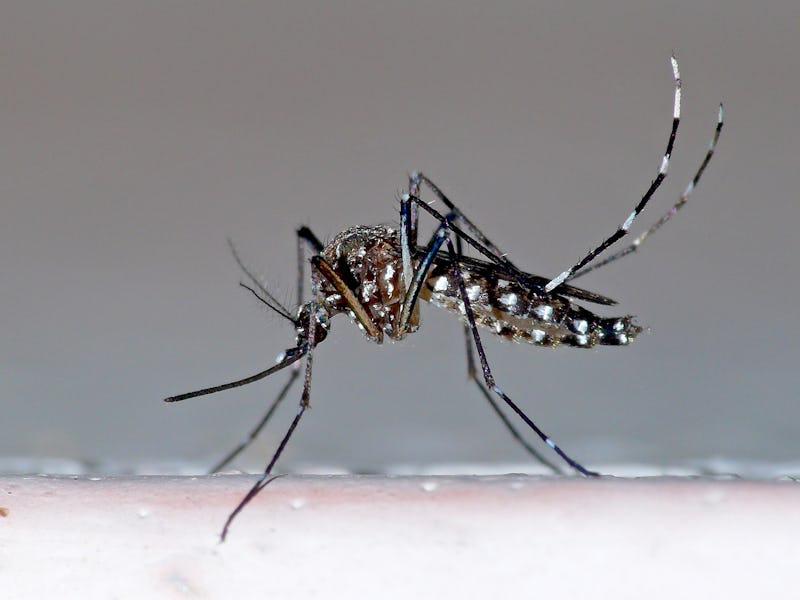The Zika Virus Can Have a Gnarly Side Effect: a Nightmarish Paralysis
Guillain-Barré syndrome is straight out of a horror movie.

Do you have travel plans to Mexico, the Caribbean, Central America, or South America? Avoid the mosquitoes.
The Zika virus is spreading like wildfire in those regions, where levels of immunity are low, and causing brain damage in some newborns whose mothers became infected while pregnant.
But the threat may be much bigger than pregnant women and newborns. Some scientists and doctors are warning that the Zika virus could be linked to an uptick in the rare but terrifying Guillain-Barré syndrome.
Guillain-Barré attacks the nervous system, and can paralyze sufferers so completely that they cannot breathe without the help of life support. A person’s immune system attacks the myelin sheaths around nerves, disrupting the body’s ability to communicate with its various parts.
“Most people with Guillain-Barré recover, but their struggle is often harrowing,” the New York Times has reported. “Patients in Brazil described a creeping inability in their limbs to feel textures, heat, and pain, along with sensations of tingling in parts of their body. In severe cases, they can become almost completely paralyzed — conscious but unable to speak or move, as if trapped inside their bodies — and can go into cardiac arrest or comas.”
Residents of the Olinda prefecture in northeast Brazil attend an emergency meeting on the Zika virus threat.
Reports of the link between Zika and Guillain-Barré are still being investigated as several regions in the Americas are seeing a surge in both. Brazil, Colombia, Venezuela, and El Salvador have seen an increase in the syndrome that correlates with the spread of the virus.
On Friday, the Centers for Disease Control and Prevention issued new travel alerts for Barbados, Bolivia, Ecuador, Guadeloupe, Saint Martin, Guyana, Cape Verde, and Samoa, where the Zika virus is being transmitted. Countries across the Americas, from Mexico to Paraguay, have been affected.
The Zika virus is transmitted by a specific species of mosquito called Aedes. It is related to the dengue, yellow fever, and West Nile viruses.
The CDC has warned travelers to affected regions to take precautions to avoid mosquito bites, including wearing long sleeves and pants, wearing insect repellant, and sleeping under a net. Pregnant women and those who plan to become pregnant have been advised to delay travel to affected regions, or talk to their doctor and take precautions if travel cannot be avoided.
CDC interim guidelines for pregnant women returning from a country with Zika virus transmission.
The CDC recommends that pregnant women returning from affected countries be tested for the Zika virus if they have had symptoms of fever, rash, joint pain, or blood-shot eyes. The organization also recommends screening the fetus for evidence of microcephaly, an abnormal smallness of the head, indicating brain damage that could have been caused by the Zika virus.
The Zika virus by itself is not all that threatening to healthy adults. It only causes symptoms in about a fifth of those infected, and symptoms are generally mild. The virus was discovered in 1947 in Uganda, and is common in Africa and Asia.
It is only since the outbreak in Brazil in May that the virus has captured the world’s attention, since introduction into a large population without immunity has allowed it to spread dramatically.
And, only under these conditions has the link from the virus to fetal brain damage, and potentially to Guillain-Barré syndrome, become apparent.
Infectious disease specialists are hard at work on developing a quick test for the virus, and efforts towards a vaccine have also begun.